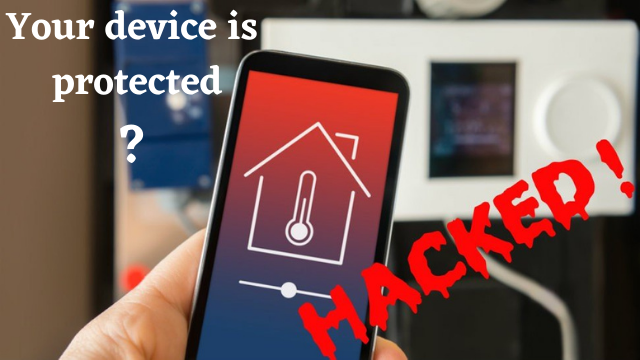Your smart device may not be safe, remains unprotected to hacking
Your smart device may not be safe, remains unprotected to hacking. Researchers at a cybersecurity firm say they need identified vulnerabilities in software widely employed by many connected devices - flaws that would be exploited by hackers to penetrate business and residential computer networks and disrupt them.
There is no evidence of any intrusions that made use of those vulnerabilities. But their existence in data-communications software central to internet-connected devices prompted the U.S. Cybersecurity and Infrastructure Security Agency to flag the difficulty during a bulletin.
Potentially affected devices from an estimated 150 manufacturers range from networked thermometers to "smart" plugs and printers to office routers and healthcare appliances to components of commercial control systems, the cybersecurity firm Forescout Technologies said during a report released Tuesday. Most affected are consumer devices including remote-controlled temperature sensors and cameras, it said.
In the worst case, control systems that drive "critical services to society" like water, power and automatic building management can be crippled, said Awais Rashid, a scientist at Bristol University in Britain who reviewed the Forescout findings.
In its advisory, CISA recommended that users take defensive measures to attenuate the danger of hacking. especially, it suggested isolating industrial control systems from the web and isolated from corporate networks.
The discovery highlights the risks that cybersecurity experts often find in internet-linked appliances designed without much attention to security. Sloppy programming by developers is that the main issue during this case, Rashid said.
Fixing the issues, which could afflict many impacted devices, is especially complicated because they reside in so-called open-source software, code freely distributed to be used and further modification. during this case, the difficulty involves fundamental internet software that manages communication between internet devices via a technology called TCP/IP.
Fixing the vulnerabilities in impacted devices is especially complicated because open-source software isn't owned by anyone, said Elisa Costante, Forescout's vice chairman of research. Such code is usually maintained by volunteers. a number of the vulnerable TCP/IP code is 2 decades old; a number of it not supported, Costante added.
Read about Tesla New innovation
It is up to the device manufacturers themselves to patch the issues and a few might not bother given the time and expense required, she said. a number of the compromised code is embedded during a component from a supplier - and if nobody documented that, nobody may even know it's there.
"The biggest challenge comes find out what you've ," Rashid said.
If unfixed, the vulnerabilities could leave corporate networks hospitable crippling denial-of-service attacks, ransomware delivery or malware that hijacks devices and enlists them in zombie botnets, the researchers said. With numerous people performing from home during the pandemic, home networks might be compromised and used as channels into corporate networks through remote-access connections.
Forescout notified as many vendors because it could about the vulnerabilities, which it dubbed AMNESIA:33. But it had been impossible to spot all affected devices, Costante said. the corporate also alerted U.S., German and Japanese computer security authorities, she said.
The company discovered the vulnerabilities in what it called the most important study ever on the safety of TCP/IP software, a year-long effort it called Project Memoria









Post a Comment